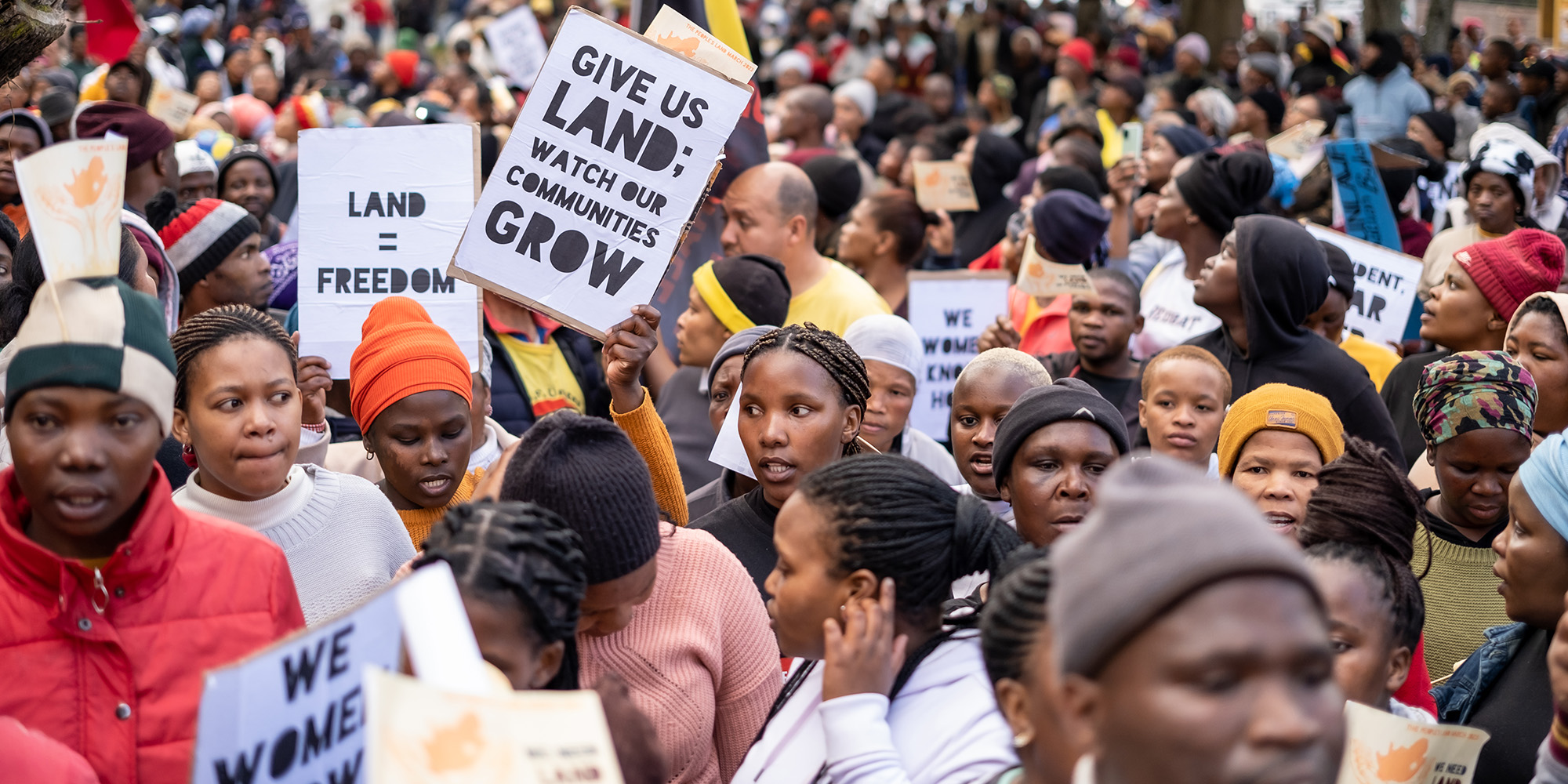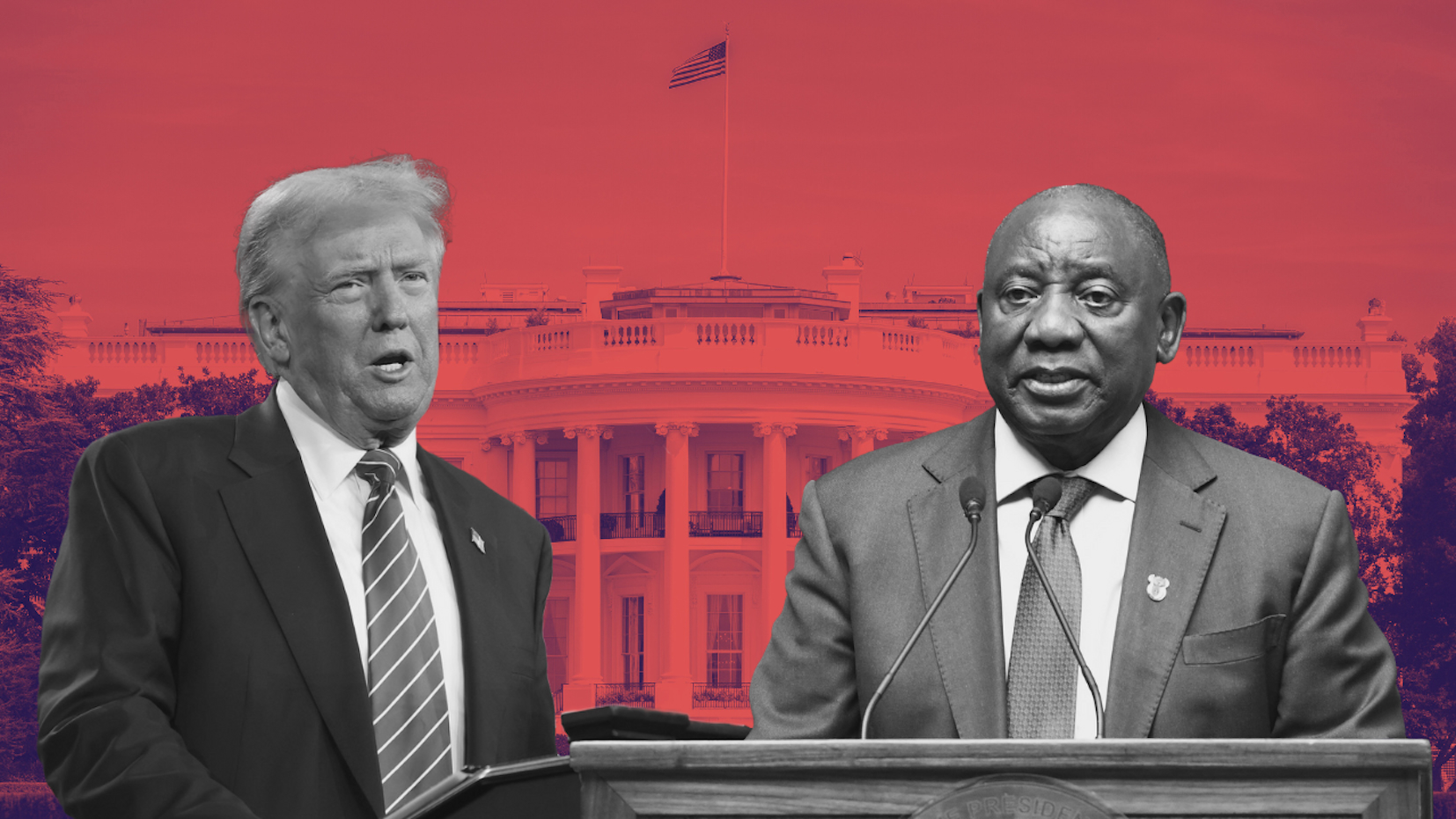And just like that, bang on cue, US President Donald Trump’s statement that the South African government was “confiscating land” and “doing terrible things” landed days after the minority civil rights organisation AfriForum threatened to “mobilise internationally”.
AfriForum CEO Kallie Kriel hit back last week after the signing of the Expropriation Bill by President Cyril Ramaphosa, announcing that the organisation had a three-point plan to halt it.
First would be an approach to Minister of Public Works and Infrastructure Dean Macpherson to prevent him from co-signing the bill as required by law.
Step two would be to test the constitutionality of the Act as set out by AfriForum in a letter to Ramaphosa last year.
And third, Kriel said the organisation would “approach international role players” in a “targeted campaign”.
Launching Option Three
Option three appears to have jumped the gun, with Trump’s ill-informed claims on Monday in an on-the-trot interview about cutting aid to South Africa.
He was only cutting aid to South Africa because “terrible things are happening there. The leadership is doing some terrible things, horrible things… they are taking away land, they are confiscating land and doing things perhaps worse than that.”
Ramaphosa’s office politely issued a statement afterwards reminding Trump that South Africa was a “constitutional democracy that is deeply rooted in the rule of law, justice and equality. The South African government has not confiscated any land.
“The recently adopted Expropriation Act is not a confiscation instrument, but a constitutionally mandated legal process that ensures public access to land in an equitable and just manner as guided by the Constitution.”
South Africa, like the US and other countries, Ramaphosa’s office noted, “has always had expropriation laws that balance the need for public usage of land and the protection of rights of property owners”.
As far as funding is concerned “with the exception of Pepfar Aid, which constitutes 17% of South Africa’s HIV/Aids programme, there is no other significant funding that is provided by the United States in South Africa”.
 AfriForum CEO Kallie Kriel addresses the media in Pretoria on the service delivery situation in the Koster and Swartruggens area on 11 March 2021. (Photo: Gallo Images / Beeld / Deaan Vivier)
AfriForum CEO Kallie Kriel addresses the media in Pretoria on the service delivery situation in the Koster and Swartruggens area on 11 March 2021. (Photo: Gallo Images / Beeld / Deaan Vivier)
Calm the F Down
Advocate Tembeka Ngcukaitobi – author of The Land Is Ours and Land Matters: South Africa’s Failed Land Reforms and the Road Ahead – is a key contributor to land jurisprudence.
Writing for the Mail & Guardian on 31 January, he noted that the power of expropriation “is necessary for a functional state, based on the rule of law and constitutionalism, especially where the economy is structured to preserve private property”.
Without this power, he noted, it was difficult to see how the state could deliver basic services.
“The alternative to the power of expropriation is the abolition of private property and its replacement with nationalisation.”
Public interest
Ngcukaitobi noted that the new Act repealed and replaced the 1975 Act, and that it differed from its predecessor in two important respects.
First “that expropriation may be undertaken in the public interest and for public purposes”, and second, the Act “introduced a novel concept of compensation for the owner of property, not based on ‘willing seller, willing buyer’, but on ‘justice and equity’, terms which are slippery and have never been capable of precise legal or economic definition, despite many attempts at attaining precision”.
 Farmers plough near Bronkhorstspruit on 9 November 2023. (Photo: Felix Dlangamandla)
Farmers plough near Bronkhorstspruit on 9 November 2023. (Photo: Felix Dlangamandla)
Expropriation, he set out, took place in two stages, when the state notified the owner of the intention to acquire the property, the reasons, the amount of compensation and when this would take place.
Most crucially, “such decisions are also subject to judicial control under the administrative justice provisions of our Constitution and legislation”.
“In this sense, while the state has the power to decide on the expropriation, it has no power to decide its legality.”
Enter justice
Enter the Land Court and its recently appointed deputy president, Judge Susannah Cowen.
In South Africa, judges, not politicians, have the final say on the legality of administrative decisions, noted Ngcukaitobi.
Leaving it up to the courts as final arbiters of the final amount in itself meant that the Act could be described, “to borrow from social historian and political activist EP Thompson, as ‘a bad law made by bad legislators’, even if it does not yet pass for a good law”.
Whether this Act would be a good law depended on whether it would be interpreted “with common sense and applied with compassion”.
During her interview before the Judicial Service Commission (JSC) for the position on the Land Court, Cowen debated section 25(3) of the Constitution with EFF leader Julius Malema, who had asked for her views on the matter.
 Thousands of protesters gather at the President’s official residence, Genadendal, in Cape Town on 23 August 2023 to demand the release of government land for housing. (Photo: Zacharia Mashele / Ndifuna Ukwazi)
Thousands of protesters gather at the President’s official residence, Genadendal, in Cape Town on 23 August 2023 to demand the release of government land for housing. (Photo: Zacharia Mashele / Ndifuna Ukwazi)
In her previous JSC interviews Cowen had agreed she would deal with the question at “a high level”, considering the matter would most certainly come before the Land Court.
As reported earlier, the exchange that followed was a study of a measured, informed and expert response from an individual who has shown her commitment to fixing land reform:
Malema: “What is your take on the current Constitution and does it allow expropriation without compensation?”
Cowen: “My view is that it is a very important question that matters to a lot of South Africans and is going to have to be squarely decided by courts.
“There is no real debate about whether the Constitution, properly applied, permits nominal compensation. I cannot see how that is debatable.”
However, she added, there were other factors to take into account and which were expressly set out in section 25(3). One of these was the factoring in of state subsidies given to white farmers in the past calculated against market value.
“You can come up with a zero balance. It is a mathematical formula. Zero as opposed to nominal. I have read different arguments and I don’t know the answer,” she told Malema.
Read more: ‘Maverick’ Judge Susannah Cowen exemplifies deeply committed leadership of game-changing new Land Court
Cowen added that there were “compelling reasons in the Constitution why there should be departures from market value compensation”. She was aware of political debates and these “are important to South Africans”, she mused.
Ramaphosa said he “looked forward” to engaging with “the Trump administration over our land reform policy and issues of bilateral interest”.
“We are certain that out of those engagements, we will share a better and common understanding over these matters.”
Fingers crossed. DM




 Thousands of protesters gather at Genadendal to demand the release of government land for housing. (Photo: Zacharia Mashele / Ndifuna Ukwazi)
Thousands of protesters gather at Genadendal to demand the release of government land for housing. (Photo: Zacharia Mashele / Ndifuna Ukwazi) 